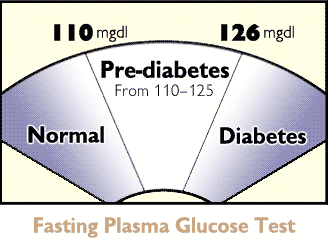
Diabetes is a disease that had complications (other disease causing) the most. This is related to blood sugar levels that are constantly high, so resulting the damage to blood vessels, nerves and other internal structures of human body. Complex substance consisting of sugar in the blood vessel wall causes blood vessels to thicken and leak. Due to the thickening then the blood flow will be reduced, especially those headed to the skin and nerves.
Blood sugar levels that not controlled are also likely to cause levels of fatty substances in the blood increases, so as to accelerate the occurrence of atherosclerosis (the accumulation of fatty plaques in blood vessels). Atherosclerosis is 2-6 times more common in diabetics.
Poor blood circulation is through a large blood vessels (macro) can injure the brain, heart, and leg veins (macroangiopathy), whereas the small blood vessels (micro) can hurt the eyes, kidneys, nerves and skin and then to slower the healing of wounds.
Diabetics can experience various long-term complications, especially if their diabetes not managed properly. The most common complications are cardiovascular disease, eye problems, diabetic neuropathy, itchy feet, osteoporosis and deadly heart attacks and strokes.
Damage to the eye's blood vessels can cause visual impairment due to damage to the retina (diabetic retinopathy). Abnormalities of kidney function can cause kidney failure, so people may have to receive hemodialysis treatment.
Disturbances in the nerves can manifest in several forms. If the nerve has an abnormal function (mononeuropathy), then a normal arm or leg suddenly became weak. If the nerves to the hand, leg and foot were damaged (diabetic polineuropathy), the arm and leg will feel a tingling sensation or burning pain and weakness.
Nerve damage causes more frequent skin injuries because people can not feel any pressure and temperature changes. Decreased blood flow to the skin can also cause ulcers (sores) and the slow healing of wounds. Ulcer on the foot can be very deep and have an infection and will have a long healing period so that the leg must be amputated.
Many medical treatments are available to help when diabetes complications occur. In addition, the measures described above can still be helped by slowing or stopping the progression of the disease. So this is not time to give up. Instead, it is important to work with your doctors to help you keep working toward tight blood glucose control and following a program of healthy, low-fat eating, regular exercise and quitting smoking.
Following are the most common complications of Diabetes:
»» Cardiovascular disease: People with diabetes are two to four more times likely to develop heart disease and five times more likely to have a stroke than people without diabetes.
»» Kidney damage: People with diabetes are 20 times more likely to develop kidney failure than people without diabetes.
»» Nerve damage (neuropathy): At least half of all people who have diabetes for 25 years or more have neuropathy, which can result in such diverse symptoms as pain in hands, feet, thighs or face, digestive problems, bladder or bowel control problems, loss of sensation, muscle weakness, and impotence or other Sexual Performance Problems.
»» Eye disease (diabetic retinopathy): People with diabetes are four times more likely to become blind than people without diabetes.
»» Infections: Excessive blood glucose can hamper the immune system, creating a greater risk for infections in the mouth and gums, lungs, skins, feet, genital areas, in the incision areas after major surgery. Neuropathy can also lead to increased infections: decreased sensitivity may cause small cuts, abrasions or burns to go unnoticed and therefore untreated until a major infection develops; neuropathy that affects the bladder may lead to bladder infections.





 Older Post
Older Post






